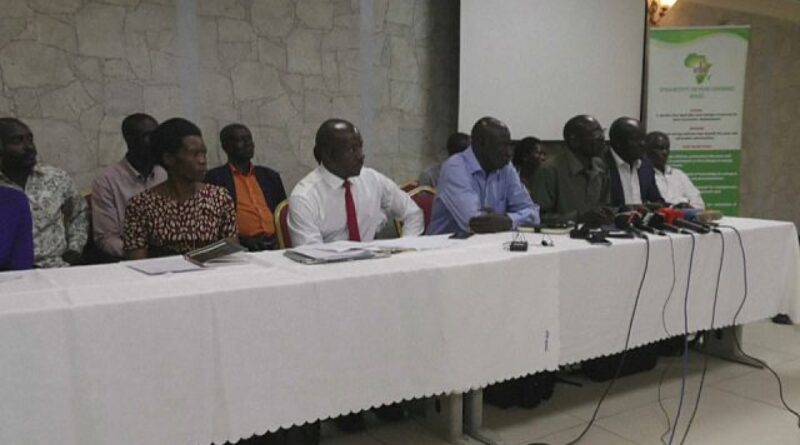Uganda: Reaction following French court ruling in favor of TotalEnergies
A Ugandan NGO wishes appeal in French courts in the near future after losing a case against TotalEnergies last month.
The Chief Executive of African Institute for Energy Governance (AFIEGO), Dickens Kamugisha, said NGOs are consulting with lawyers and project affected persons (PAP) in the case of the pipeline in Uganda.
– The February Case –
A French court on had dismissed a landmark case against TotalEnergies for a massive oil project in Uganda and Tanzania after several NGOs filed a suit to suspend the controversial project.
It was the first case of its kind in France, and activists had hoped it would set a legal precedent to halt projects deemed harmful to the environment and human rights.
Six NGOs that filed the suit argued the development of the East African Crude Oil Pipeline (EACOP) failed to adhere to a “duty of vigilance”, a 2017 law that compels companies to avoid grave harm to human rights, health, safety and the environment.
The court in February ruled the case was “inadmissible”, saying the plaintiffs did not correctly follow court procedures against the French energy giant.
It said the plaintiffs submitted accounts to the court in December that were “substantially different” from those that were presented to TotalEnergies in a formal notice in 2019 when the case was initiated.
The suit was brought by two French and four Ugandan NGOs, which accused TotalEnergies of taking land from more than 100,000 people without adequate compensation.
They also said the company drilled wells in the biodiversity-rich Murchison Falls National Park on the shores of Lake Albert.
Friends of the Earth and Survival, the two French NGOs, and the Ugandan groups denied having substantially modified their submissions to the court.
They “only clarified them and consolidated their arguments with more than 200 documents of supporting evidence”, said Juliette Renaud, a campaigner with Friends of the Earth.
The plaintiffs, who can appeal against the decision, said they would speak to “the affected communities” about their next steps, Renaud added.
Celine Gagey, the lawyer who represented the NGOs, said they would take time to “digest the decision” and discuss whether it would be best to appeal.
The “very strong popular mobilisation” over the project “obliged Total to improve the transparency of its actions” and make further efforts which remain insufficient, she added.
– Economic boon –
TotalEnergies welcomed the ruling.
It said the verdict recognised the firm had “formally established a vigilance plan” with elements “sufficiently precise to not be regarded as cursory”.
The $10-billion oilfields and pipeline project has been hailed by supporters as an economic boon for Uganda and Tanzania, where many live in poverty, but is strongly opposed by environmentalists.
The project is being jointly developed by TotalEnergies and the China National Offshore Oil Corporation (CNOOC), along with the state-owned Uganda National Oil Company.
The 1,443-kilometre (900-mile) pipeline will transport crude from vast oilfields being developed in Lake Albert in northwestern Uganda to a Tanzanian port on the Indian Ocean.
Lake Albert, a natural border between Uganda and the Democratic Republic of Congo, lies atop an estimated 6.5 billion barrels of crude, of which about 1.4 billion barrels are currently considered recoverable.
Tanzanian Energy Minister January Makamba this month rejected the environmental and rights concerns as “propaganda”, saying the country complied with environmental, safety and human rights standards.
The ruling in France is the first instance of the “duty of vigilance” being tested in a courtroom.
Several legal proceedings for failure to comply with the “duty of vigilance” are underway against other French companies, including Casino, Suez, Yves Rocher and BNP Paribas.

